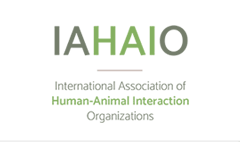Abstract
The aim of this study was to examine the effects of animal-assisted therapies with farm animals (AATF), in this case domesticated ducks, on depression, anxiety, and self-efficacy in patients with traumatic brain injury (TBI). Furthermore, the following hypothesis was tested:
Engaging in AATF with domesticated ducks will be associated with decreased depression, decreased anxiety, and increased self-efficacy.
The study examined the effects of AATF on anxiety, depression, and self-efficacy among nine patients with TBI. A time series quasi-experimental design was utilized. Participants completed the Hospital Anxiety and Depression Survey (HADS) and General Self-Efficacy (GSE) questionnaires at baseline, followed by the AAFT intervention. The AAFT intervention consisted of two one-hour sessions interacting with ducks every week for 12 weeks. Participants repeated baseline measures immediately following the intervention, and again four weeks post intervention to evaluate the residual effects of the intervention.
A general linear model was employed to examine changes in anxiety, depression, and self-efficacy. Participants’ anxiety scores decreased significantly from baseline to post intervention measure (p = .009); however, there were no statistically significant differences between anxiety levels immediately post intervention and four weeks later. There were no statistically significant differences in depression or self-efficacy levels at pre-, post-, and retest.
Our study hypothesis was partially supported in that statistically significant decreases in anxiety were observed from baseline to immediate posttest. Mastery of skills, vicarious experiences, and verbal persuasion may be the factors that contributed to the beneficial outcomes of the interactions between persons with TBI and domesticated ducks.
Recommended Citation
Sargsyan, Alex; Beebe, Lora; Ng, Zenithson; Roberson, Patricia; and Thomas, Sandra
(2024)
"“Quacking for Noggin”: Farm Animal–Assisted Therapy for Traumatic Brain Injury Survivors,"
People and Animals: The International Journal of Research and Practice: Vol. 7
:
Iss.
1,
Article 15.
Available at:
https://docs.lib.purdue.edu/paij/vol7/iss1/15


